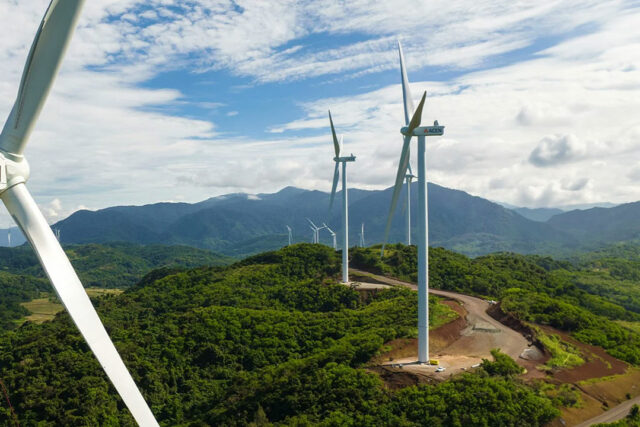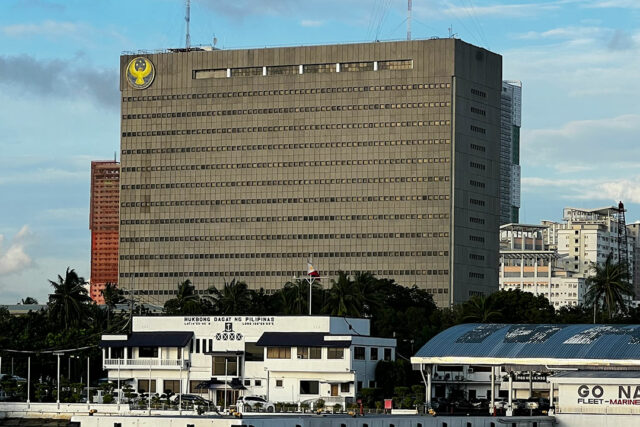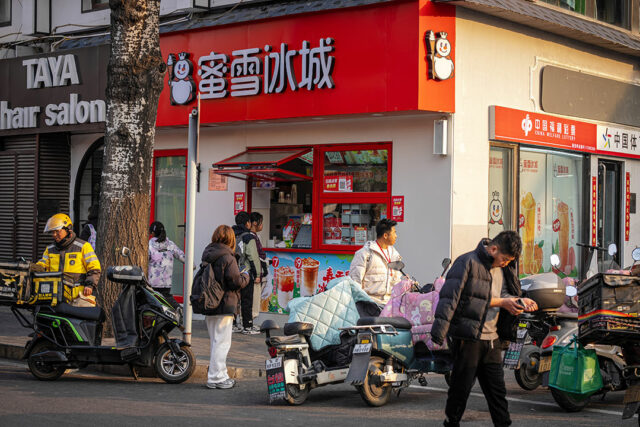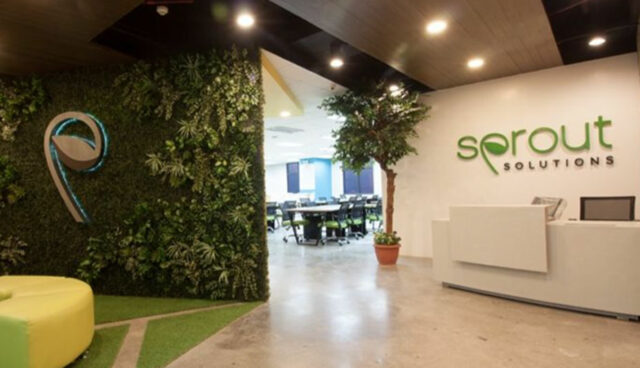THE SECOND offering of Dulaang Unibersidad ng Pilipinas’ (Dulaang UP) 47th season is tackling pressing issues on the climate crisis through a twin bill: one play exploring local mythological creatures’ perspective of a disrupted balance, and the other depicting the experiences of everyday Filipinos who attempt to address the crisis.
Mga Anak ng Unos, which runs from March 28 to April 13, combines these two brand-new plays to “deepen our understanding of climate realities.”
“It looks at critical convergences in theater-making, nature, and the human condition,” said Dulaang UP artistic director Issa Manalo Lopez during a March 8 press visit for the forthcoming twin bill.
“These performances explore how human ways of living shape and dictate ecological conditions driving destruction and endangering the existence of all life forms. They arise from the urgent need to respond to the global climate emergency as the earth’s temperature surpasses the 1.5-°C critical threshold, an escalation marked by catastrophic weather that disproportionately intensifies climate change effects and impacts on developing nations,” Ms. Lopez said.
Mga Anak ng Unos is the first of Dulaang UP’s offerings under “DUP INNOVATE,” a lab dedicated to the creation of new, developing, and original works from Filipino theater practitioners.
GODS AND CREATURES
The first play is Sa Gitna ng Digmaan ng mga Mahiwagang Nilalang Laban sa Sangkatauhan, written by Joshua Lim So (who is in the Carlos Palanca Award for Literature Hall of Fame), under the direction of José Estrella. As the title hints at, the play shows bathalas (gods) and mythological creatures in the middle of a war against the sangkatauhan (humanity).
As the battle between the gods and humanity unfolds on stage, audience members are compelled to ask if we are indeed at war and if there is still time to change the course of the conflict.
“The worldbuilding in the script is from actual folk tales. We have gods who sustain themselves through humans, alliances of a military nature in their war on mankind, and many more,” Popo Amascual, the play’s assistant director, told BusinessWorld.
“From makeup to tattoos, we try to keep it all grounded in the original lore. The flavor we add are how these creatures could be strategic in their missions under this overarching war related to the climate crisis,” she added.
The dramaturgy team said that Mr. So, as the playwright, had a few sources for the script. One was permaculture farms, which are characterized by self-sustaining agricultural zones or ecosystems, inspiring the various planes of existence of the mythological creatures; the other was Edgar Samar’s book Mga Nilalang na Kagila-gilalas, which is basically a compendium of mythological creatures based on folklore from all over the archipelago.
“This play has dialogues between these creatures and interactions with humans who have been abusive towards the earth. It all stems from local folklore. We have bathalas, aswangs, diwatas,” explained Ms. Amascual.
Their differences in language, being from different regions in the Philippines, make up “an intriguing aspect of the play that other folklore-based tales haven’t really tackled,” she added.
Other members of the artistic team include dramaturgs Anril Tiatco and Jem Javier, dramaturg-in-training Gaby Asanza, set designer Mark Dalacat, costume designer Carlos Siongco, lights designer Barbie Tan-Tiongco, and sound designer Jack Alvero.
The cast of the ensemble piece, in alphabetical order, are: Raymond Aguilar, Tristan Bite, Kris Caaya, Jasper Cabra, Exequiel Camporedondo, Sheryll Villamor Ceasico, Kenneth Charles Famy, Belle Francisco, Lee Lim, Sarina Sasaki, Jigger Sementilla, Genalyn Suelto, and Ingrid Villamarin.
HUMAN RESPONSES
Climate in Crazies, the second play in the twin bill, looks at the expanse of global experience and “zooms in on the local and more personal experience of the global climate emergency.” It is directed by Issa Manalo Lopez and Tess Jamias and is based on Australian playwright David Finnigan’s Scenes from the Climate Era.
The ensemble transposed the original text into the Filipino understanding of the crisis and everyday problems, solutions, attitudes, and actions addressing it. This means it was written through the process of devising, which refers to a collaborative method of forming a script.
“In adapting the text, it wasn’t enough that we translate. It was part of our decision-making to either let go of sentiments that were too foreign or to try to make them more local,” co-director Ms. Jamias told BusinessWorld.
Ms. Lopez, also a director of the play, added that Mr. Finnegan’s script was already a combination of different conversations — with his father who is a climate scientist, and even with her as she told him about her experience in Tacloban with Typhoon Yolanda.
“Our aim is to make it accessible. We don’t want the audiences to passively absorb information. We want them to relate with the characters who are trying to segregate, doing their part, and also expressing doubts about their real impact,” she explained.
As hinted by the title, Climate in Crazies, a pun on the word “crisis,” the goal is to tackle the serious issue with “humor, levity, and playfulness.” While Mr. Finnegan meant for the text to be transposed to different countries, Dulaang UP’s version will mark the first from the perspective from a developing country, not from the global north.
Ms. Jamias said that in the process of developing the play, the artistic team and ensemble have been on a journey themselves. “We’re all trying to understand the climate crisis. What we want to do is to bring the audience on that journey.”
Other members of the artistic team include dramaturg Nikka De Torres, set designer Mark Dalacat, costume designer Carlos Siongco, sound designers Jose Buencamino and Sage Ilagan, and video designer Tofie Falcon.
The cast is composed of actor-devisers Delphine Buencamino, Bong Cabrera, Herbie Go, and Ethan King.
Mga Anak ng Unos will run at the IBG-KAL Theater, University of the Philippines Diliman, Quezon City from March 28 to April 13. Persons with disabilities and senior citizens may enjoy a discounted rate of P800, while regular tickets are available for P1,000, via Ticket2Me or bit.ly/MgaAnakNgUnosTickets. — Brontë H. Lacsamana













